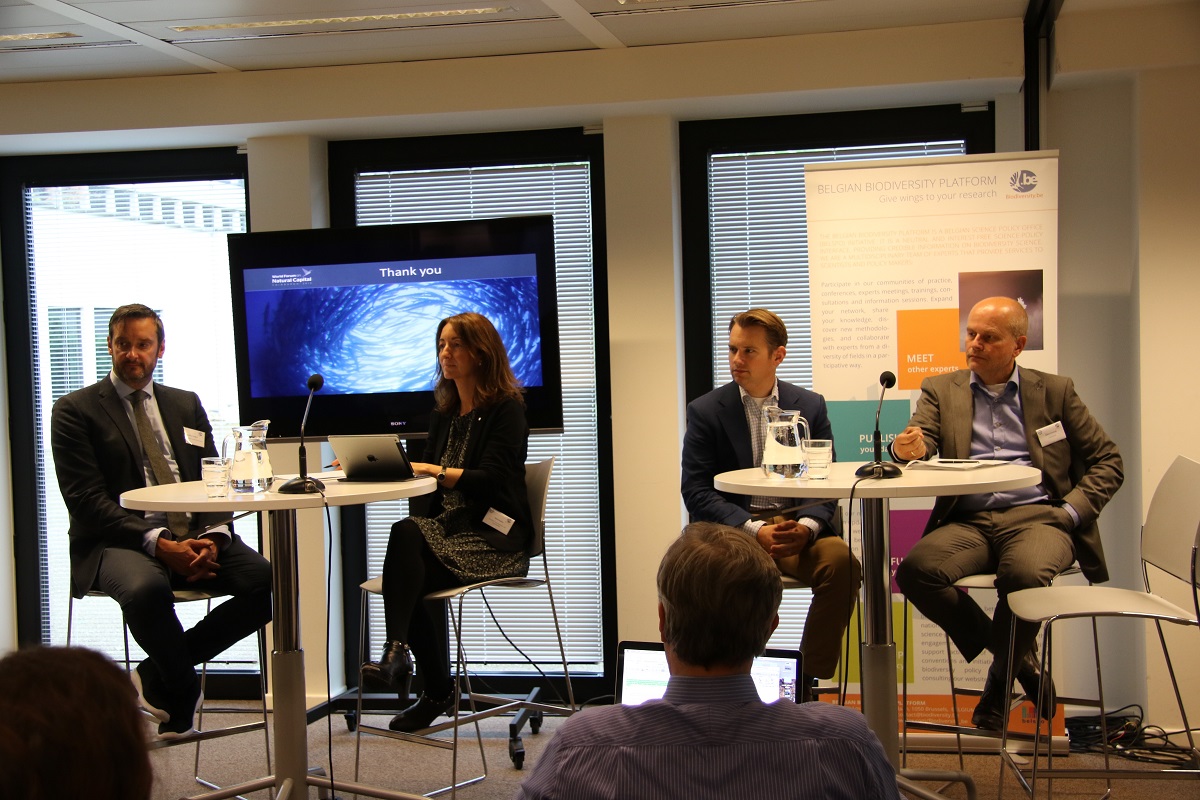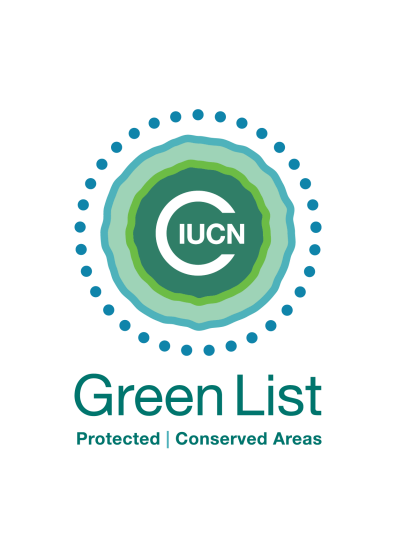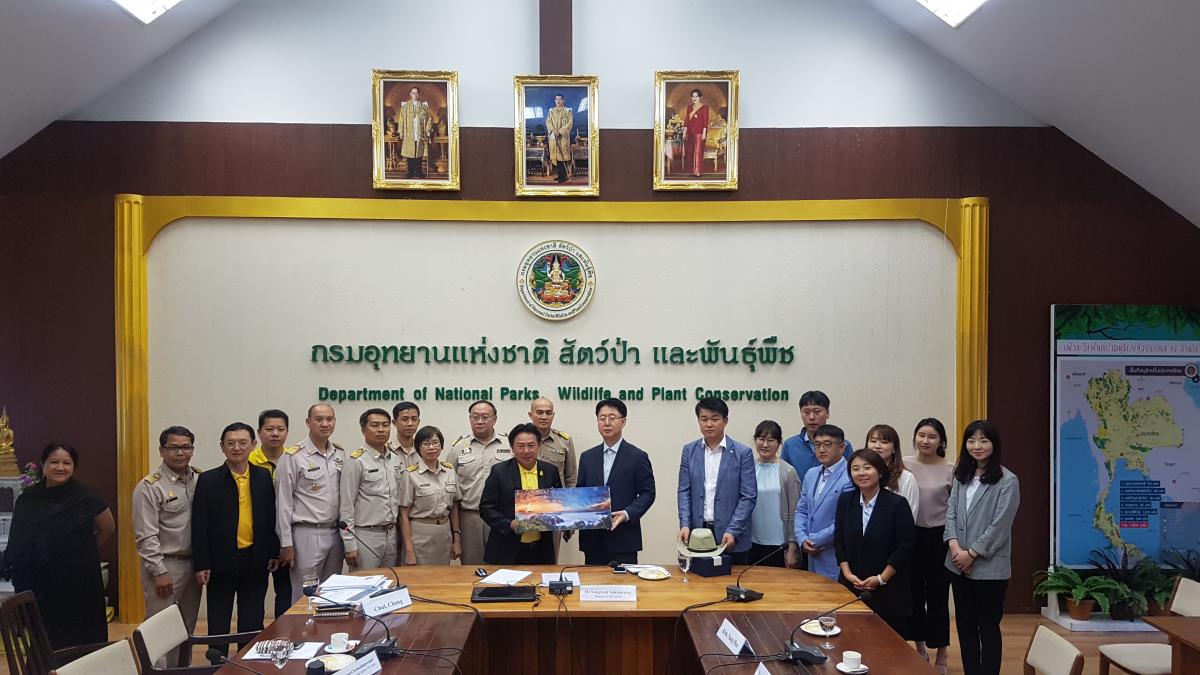EU Green Week Event: Making money through landscape restoration
In this year’s edition of European Green Week, which took place from 30 May to 3 June 2016, the focus was on ‘Investing for a greener future.’ Green Week is one of the most prominent annual events to debate and discuss European environment policy. IUCN participated in this debate by organising a session on: ‘Making money through landscape restoration: how nature-based solutions can make the countryside thrive.’ Organised in cooperation with the Belgian Biodiversity Platform, the event highlighted opportunities related to investing in the restoration of ecosystems. It showcased the multiple benefits of nature-based solutions for social and economic development, and the importance of establishing new partnerships for action in Europe to develop a better understanding of how people and economies depend on nature.

Guest speakers Jonathan Hughes, Marta Subirà Roca, Ilko Bosman and Willem Ferwerda at the IUCN EU Green Week Event 2016
Photo: Hilde Eggermont
The diverse and experienced panel of speakers presented a series of innovative ideas and best-practices to inspire land stewardship and large-scale landscape restoration through innovative partnerships. Particular attention was given to exploring new business models, entrepreneurial thinking, and financing opportunities, but also involvement of all key stakeholders at local and regional level.
Marta Subirà Roca, Secretary for Environment and Sustainability, Ministry of Territory and Sustainability of Catalonia, shared some key outcomes of studies conducted on 16 protected areas in Catalonia, Spain. By quantifying the social and economic benefits of these areas for studies, the studies found that for every euro invested in protected areas, 8.8 Euro of Gross Added Value is generated. These findings have proven useful for encouraging local communities to become more engaged in protecting and managing these sites.
Marta Subirà Roca also highlighted two government initiatives that both involve and benefit people in order to achieve nature conservation commitments. The Land Stewardship Strategy is an innovative approach to landscape and biodiversity conservation in both public and private areas. The Green Infrastructure Programme aims to improve ecological connectivity and reconnect fragmented natural areas with the wider countryside through habitat restoration. By investing in green infrastructure, Catalonia is improving urban environments and promoting nature-based solutions in order to address the EU 2020 Biodiversity Strategy.
Willem Ferwerda, CEO at Commonland, highlighted the 4 returns: inspirational, social, natural and financial capital, resulting from the restoration of degraded ecosystems. Commonland’s belief is that landscape restoration offers untapped opportunities for sustainable development. To demonstrate this potential, the organisation has developed holistic landscape restoration projects over a 20 year period, based on business cases, long-term cooperative partnerships and locally owned masterplans.
Willem Ferwerda showcased an inspiring example of the 4 returns model from Andalucía, Spain, where the restoration of a high plain has led to economic opportunities for its people. By working with hundreds of local farmers and entrepreneurs to identify and implement a strategy for restoration, Commonland acts as a catalyst and facilitator, creating a masterplan for business development. Through this ‘bottom-up’ approach, the long-term restoration of natural landscapes can be secured.
Ilko Bosman, Enterprise Director at Rewilding Europe, explained how Rewilding Europe aims to make Europe a wilder place to benefit both people and nature. Rewilding Europe aims to rewild at least one million hectares of land by 2022 through wildlife enterprises and effective communication in order to create inherent interest in maintaining and expanding Europe’s wilderness.
Ilko Bosman outlined how the rewilding enterprise model creates opportunities for investment in ecosystem restoration. Rewilding Europe pursues an entrepreneurial approach to re-introducing nature to Europe – by investing in nature that generates a return that can be used to further enhance and expand natural capital, benefiting both human well-being and the environment. Among others, Rewilding Europe supports innovative initiatives, which contribute to sustainable development such as ‘rewilding enterprises’ and the ‘European Wildlife Bank.’
Jonathan Hughes, CEO at the Scottish Wildlife Trust, discussed the outcomes of the 2015 World Forum on Natural Capital and outlined the four key focus areas of the discussion: natural capital accounting, investable conservation products, finance sector disruptors and the ethical charter. Several challenges related to investing in natural capital were also highlighted. These included de-regulating the natural capital agenda, overcoming ideological inertia, encouraging the finance sector to adopt the natural capital, and acknowledging that nature is complex and thus, not suited to a ‘one size fits all’ approach.
Jonathan Hughes also presented IUCN’s UK Peatland Code Programme, which aims to see one million hectares of UK peatlands in good condition or under restoration management by 2020. Every year, 10 million tonnes of carbon are lost in the UK through peatland degradation. This represents 2/3 of the UK’s greenhouse gas savings. The Programme attempts to develop a mechanism for private investment to restore peatlands in order to use nature-based solutions as a means to help meet the UK’s climate commitments.
Eva Mayerhofer, Lead Environment and Biodiversity Specialist Environment, Climate and Social Office at the European Investment Bank, provided concluding reflections of the session. The challenge, Eva explained, is to move from public financing to equity and insurance financing for ecosystem restoration. Eva stated that we are in a period of deregulation in terms of natural capital management, but if governments do not give the right signals and opportunities to businesses, market frameworks for landscape restoration projects will remain isolated and irreproducible.
Eva stressed the need to keep the momentum of mainstreaming natural capital going and to reduce harmful subsidies, notably in the agriculture sector, in order to fully tap into the benefits our landscapes can provide and ultimately achieve the EU Biodiversity Strategy.
The entire plenary session can be viewed here.



